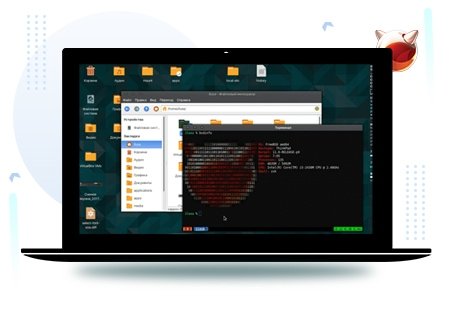The operating system comprises the following:
- The BSD kernel, it handles process scheduling, SMP, memory management, device drivers
- The C library, a base API
- Utilities including file utilities, wheels, linkers, and compilers
- The X window that handles graphical display.
- Many other utilities and programs
Why Use BSD?
The reasons why users opt for BSD are discussed in our BSD Assignment Help as follows:
It Is More Than a Kernel
BSD is an operating system, which is a big package to its end-users. Linux is comparison is just a kernel. Linux comprises of a kernel and other packages and applications chosen by the creator. At times, the installation of new packages causes incompatibility that leads to a system crash.
A BSD has a kernel and all packages and most of the packages are developed actively by a project leading to improved responsiveness and higher integration. Mostly students find it challenging to complete the writing task, that's why they buy assignment solution with BSD topics from BookMyEssay experts.
Trustworthy Packages
BSD is a trustworthy package. In Linux, you will get packages from various sources, some are offered by developers and some by third parties. In BSD every package is offered by a centralized system. This ensures that hackers cannot look into malicious software in a safe application
Long-Term Stability
The slowest Linux re. ZFS leases once a year a new version. In BSD, releases take a long time. It means you have to focus to get things right rather than getting pushed to users.
It means changes to an operating system happen with time. Linux has experienced many quick and significant changes. BSD can test new ideas to ensure they work accurately prior to making them permanent. You can produce code that can have fewer issues.
ZFS Support
One major reason why many users shifted to BSD was ZFS. ZFS was created into a BSD kernel means ZFS will perform better on BSD. There are many attempts to receive ZFS on a Linux kernel but for that licensing issues should be first solved.
Licenses
The BSD license contains just three clauses and you can take this software, make changes in it and do what you like with it and it provides protection to developers.
Flavors of BSD
BSD comes in various flavors that are highlighted in our help for assignment on BSD as follows:
- BSDi: It is a compatible and fully functional Unix-like operating system.
- FreeBSD: It is a completely functional, Unix-like, and POSIX-compatible operating system for DEC Alpha, Intel-compatible, and PC-98 architectures.
- NetBSD: It is BSD’s free version and compatible with various platforms right from handheld devices to 64-bit Alpha servers.
- OpenBSD: It is a multi-platform, Unix-like operating system. It is developed as well as maintained by a huge team of people.
- macOS X: It is an Apple operating system.





 3 Bellbridge Dr, Hoppers Crossing, Melbourne VIC 3029
3 Bellbridge Dr, Hoppers Crossing, Melbourne VIC 3029

